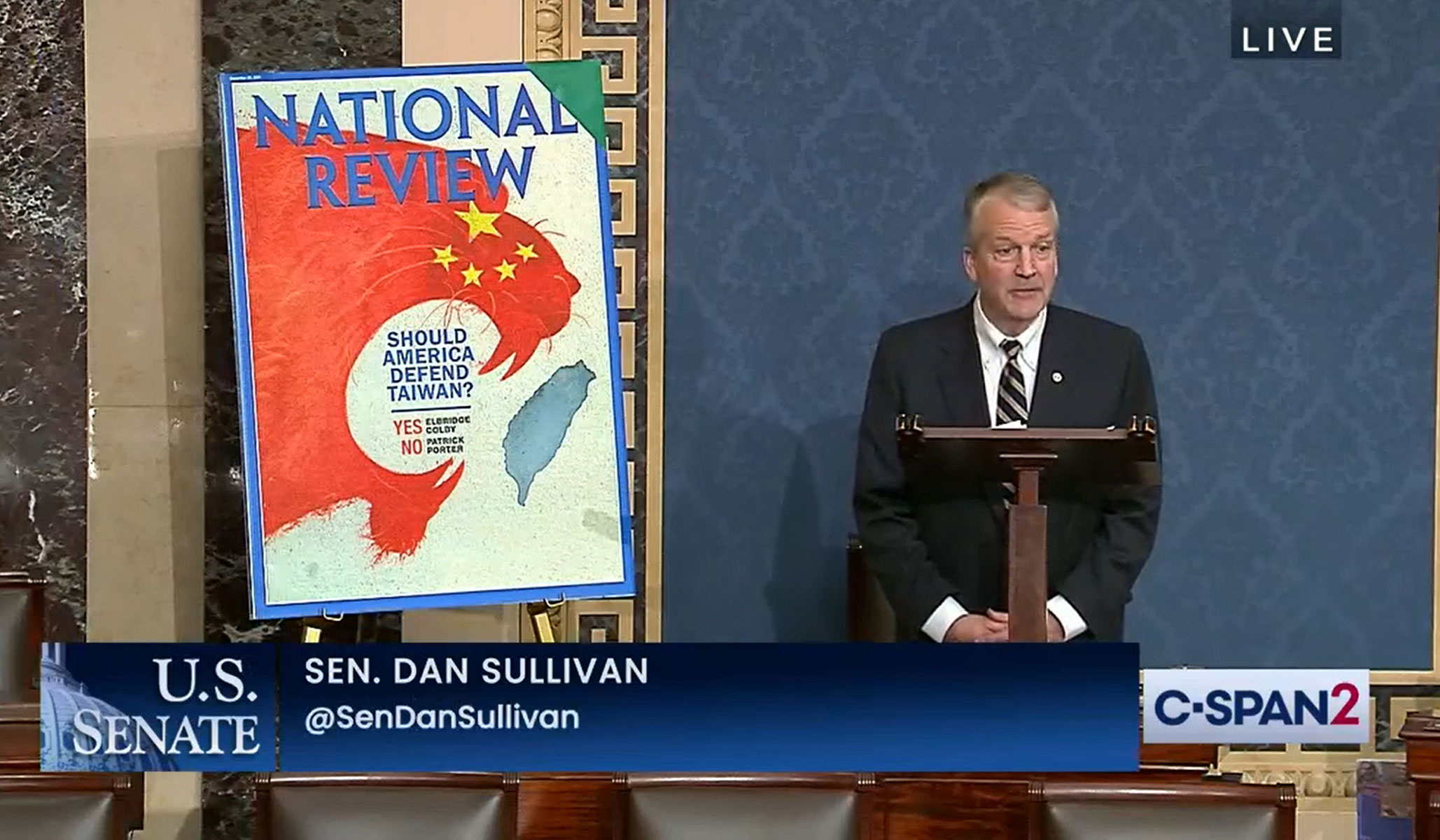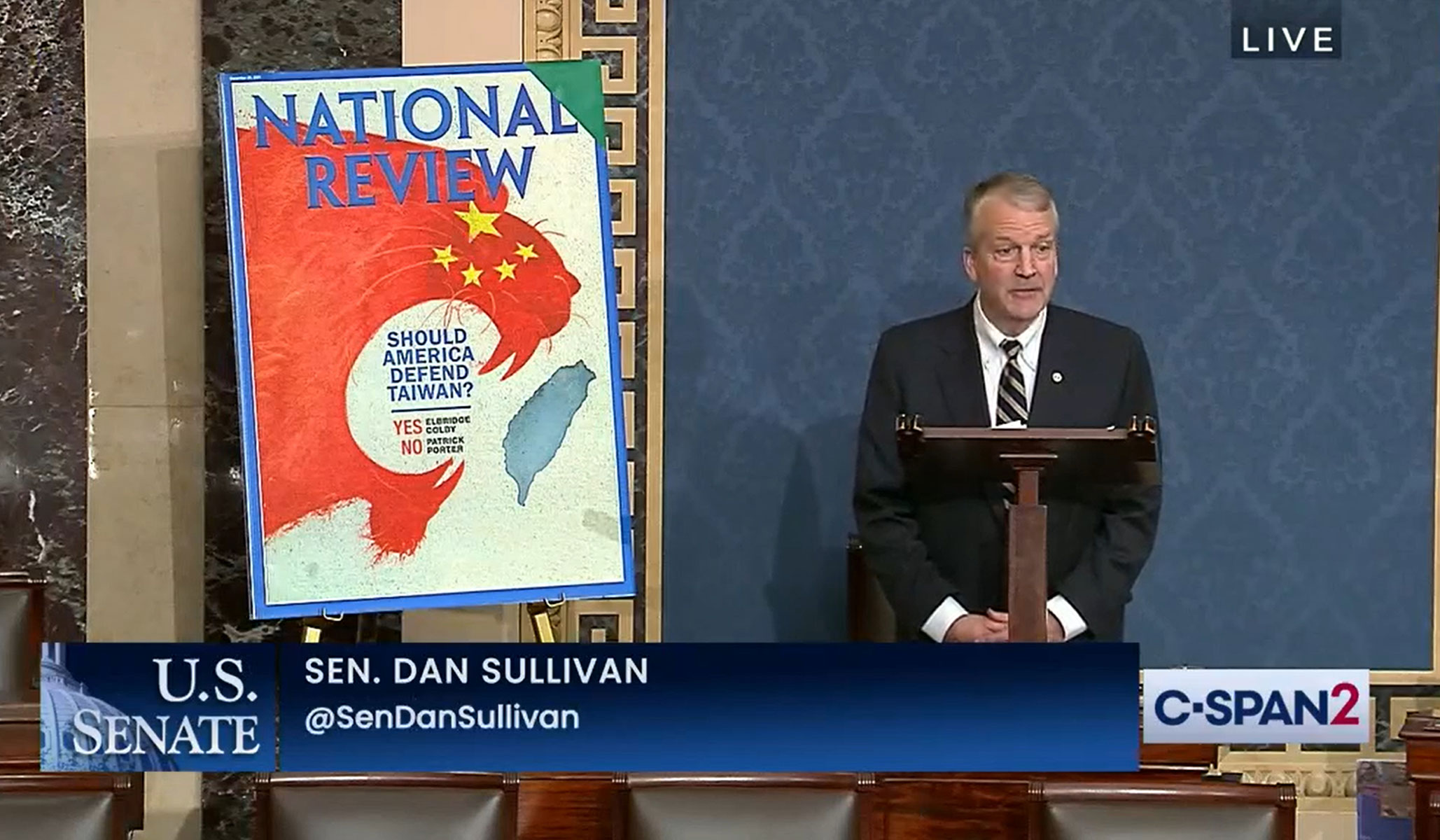
Senator Dan Sullivan has introduced a bill to impose crippling sanctions on the Chinese Communist Party and key Chinese institutions in the event of a Chinese invasion of Taiwan.
During a speech on the Senate floor this afternoon, Sullivan pitched the legislation — one of the toughest China-sanctions measures to be presented in Congress — as a proposal that threads the needle between those who want the U.S. to fight for Taiwan amid a Chinese attack and opponents of U.S. military action.
“On this issue, there are powerful arguments on both sides, as this issue admirably demonstrates,” he said, to the backdrop of a cover of the December 20 edition of National Review.
That issue of the magazine featured a debate on whether America should defend Taiwan. Elbridge Colby, a former senior Pentagon official and author of The Strategy of Denial, argued that the U.S. should come to Taiwan’s defense; Patrick Porter of the University of Birmingham opposed American military intervention but supported efforts to deter a Chinese invasion.
“I believe there is much less disagreement on whether the United States should take actions now to deter a Chinese Communist Party military invasion of Taiwan in the future. Indeed, taking actions now to promote deterrence of a Chinese invasion of Taiwan is an area where I believe there is broad bipartisan agreement and support in the United States Senate,” Sullivan said today.
The Alaska Republican’s legislation would impose heavy sanctions on Chinese financial institutions and certain industrial sectors if the party mounts an invasion of Taiwan. The act also prohibits Americans from making any investments in Chinese entities linked to the Chinese Communist Party and imposes sweeping export bans on certain categories of goods from China, if Beijing decides to move against the island.
Sullivan in his remarks mentioned his questioning of former Indo-Pacific commander admiral Phil Davidson last year, during which the top military officer said that the party could mount an invasion within six years. A Taiwanese national-security official told the country’s parliament last year that Taipei doesn’t expect an invasion attempt until 2024.
The bipartisan U.S.–China Economic and Security Review Commission also warned last year that the U.S. is less likely to be capable of deterring a Chinese attack if Washington “is not militarily capable of or politically willing to intervene, or if [Chinese leaders] interpret ambiguities in U.S. policy to mean that opportunistic Chinese aggression against Taiwan will not provoke a decisive U.S. response.”
Sullivan’s bill aims to clarify U.S. policy on a Chinese attack.
“The bill’s goal is to make very clear to President Xi today the true cost of what such a military invasion would be, thereby heightening deterrence, which we all in the U.S. Senate support,” he said.
There are currently a number of other legislative proposals focused on bolstering U.S. support for Taiwan, including legislation from Representative Elaine Luria to preemptively give the president authority to use force to respond to a Chinese invasion, and the Taiwan Deterrence Act, a proposal led by Senator Jim Risch to authorize $2 billion in annual foreign military financing for Taiwan.

